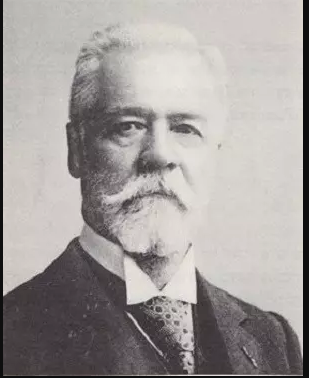Principle Of Management
Meaning Principle of Management
The organizational principle is the great and overall direction for determining the performance. For instance, while ascertaining about the promotion of an employee, a manager may contemplate seniority, whereas the other may follow the principle of quality.
One may define principles of management from those of pure science. Management principles are not as firm as postulates of pure science. They deal with human traits and, hence, are to be employed creatively given the requirements of the position. Human behavior is never inactive and so also technology, which business. Therefore all the principles have to keep step with these changes. For instance,
- In the absenteeism of Information and Communications Technology (ICT), a manager could manage only a small workforce that too within a restricted geographical area.
- The approach of ICT has developed the ability of the managers to control over large business domains scattered across the globe.
- In promoting an understanding of the application of principles of management, it is also helpful to comprehend what these are not.
- The principles of management should be selected from techniques of management. Techniques are methods or techniques, which include a group of steps to be taken to achieve sought goals.
- Principles are guidelines to make judgements or actions while studying techniques. Moreover, principles should also be comprehended as being different from values.
Henry Fayol, also known as the Father of Modern Management Theory, gave a new perception on the concept of management. He introduced a general theory that can be applied to all levels of management and every department. He envisioned maximizing managerial efficiency. Today, Fayol’s theory is practiced by the management to organize and regulate the internal activities of an organization.

The fourteen principles of management created by Henri Fayol are explained below.
1. Division of Work
Henri believed that segregating work in the workforce amongst the workers will enhance the quality of the product. Similarly, he also concluded that the division of work improves the productivity, efficiency, accuracy and speed of the workers. This principle is appropriate for both the managerial as well as a technical work level.
2. Authority and Responsibility
These are the two key aspects of management. Authority facilitates the management to work efficiently, and responsibility makes them responsible for the work done under their guidance or leadership.
3. Discipline
Without discipline, nothing can be accomplished. It is the core value for any project or any management. Good performance and sensible interrelation make the management job easy and comprehensive. Employees’ good behavior also helps them smoothly build and progress in their professional careers.
4. Unity of Command
This means an employee should have only one boss and follow his command. If an employee has to follow more than one boss, there begins a conflict of interest and can create confusion.
5. Unity of Direction
Whoever is engaged in the same activity should have a unified goal. This means all the people working in a company should have one goal and motive which will make the work easier and achieve the set goal easily.
6. Subordination of Individual Interest
This indicates a company should work unitedly towards the interest of a company rather than personal interest. Be subordinate to the purposes of an organization. This refers to the whole chain of command in a company.
7. Remuneration
This plays an important role in motivating the workers of a company. Remuneration can be monetary or non-monetary. Ideally, it should be according to an individual’s efforts they have put forth.
8. Centralization
In any company, the management or any authority responsible for the decision-making process should be neutral. However, this depends on the size of an organization. Henri Fayol stressed on the point that there should be a balance between the hierarchy and division of power.
9. Scalar Chain
Fayol, on this principle, highlights that the hierarchy steps should be from the top to the lowest. This is necessary so that every employee knows their immediate senior also they should be able to contact any, if needed.
10. Order
A company should maintain a well-defined work order to have a favorable work culture. The positive atmosphere in the workplace will boost more positive productivity.
11. Equity
All employees should be treated equally and respectfully. It’s the responsibility of a manager that no employees face discrimination.
12. Stability
An employee delivers the best if they feel secure in their job. It is the duty of the management to offer job security to their employees.
13. Initiative
The management should support and encourage the employees to take initiatives in an organization. It will help them to increase their motivation and morale.
14. Esprit de Corps
It is the responsibility of the management to motivate their employees and be supportive of each other regularly. Developing trust and mutual understanding will lead to a positive outcome and work environment.
Conclusion
You have now understood how the Principles of Management are essential guidelines that shape organizational behavior and efficiency. They encompass crucial aspects like division of work, authority, discipline, unity of command and direction, remuneration, and equity, among others. Understanding and applying these principles effectively can significantly contribute to organizational success and employee satisfaction.

Comments